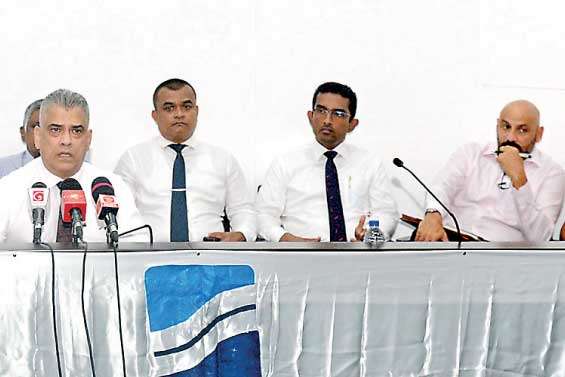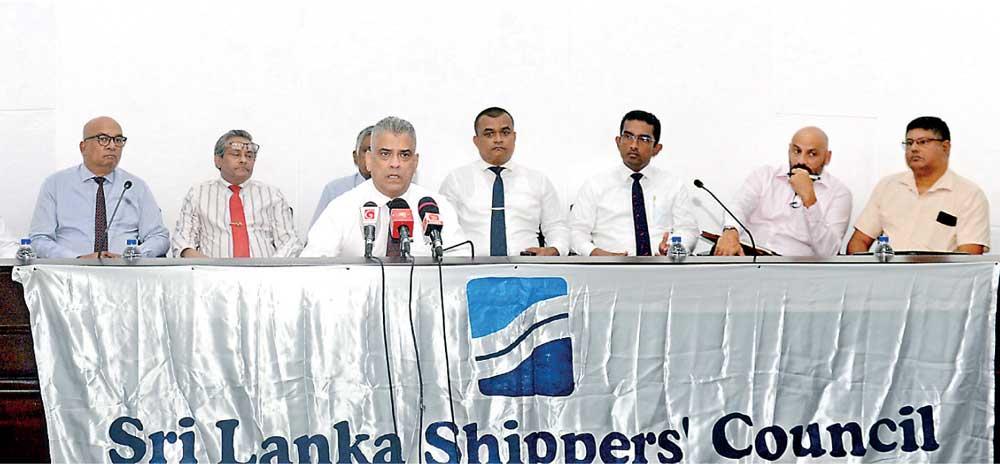Reply To:
Name - Reply Comment


Sri Lanka Shipper’s Council Chairman Sean Van Dort leading the discussion yesterday while representatives of key association look on - Pic by Pradeep Pathirana
By Shabiya Ali Ahlam
Sri Lanka’s private sector delivered a scathing critique yesterday, slamming authorities for their sluggish response in shielding industries from disruptions caused by key institutions such as Sri Lanka Customs.
These delays have not only escalated operational costs but also tarnished the country’s international reputation.
Twenty-five industry associations came on to one platform to share a hard hitting message to the government and relevant authorities: “Sri Lanka has had enough!”
“If government institutions want to take industry action, the private sector cannot be held to ransom,” said Sri Lanka Shipper’s Council Chairman Sean Van Dort, leading the discussion.
“Our international reputation has gone to dogs. Strikes may occur, but immediate remedial action should be the top priority.
“We will no longer engage in talks with Customs; our discussions will now exclusively involve the Finance Ministry to fulfil commitments made to us. Given the current situation, no investor will be attracted to Sri Lanka,” Van Dort emphasised, speaking to journalists and private sector stakeholders in Colombo.
The trade union of Sri Lanka Customs initiated a ‘go-slow’ action a month ago and launched a token strike yesterday, which was resolved by evening following the intervention of the Ministry of Finance.
The private sector condemned this move, alleging it was designed to deliberately harm industries and severely impede the clearance of import cargo for local consumption and export value addition.
Stakeholders highlighted that disrupted demand and increased costs of imported goods would disproportionately impact the country’s most vulnerable citizens and render exports uncompetitive—an area already struggling.
There is significant concern that raw materials, parts, and accessories crucial for BOI factories to fulfil export orders are being held up at ports and airports, potentially causing production delays, order cancellations, or the manufacturing company having to pay to airlift the cargo.
Moreover, the mounting backlog of uncleared import containers at terminals may prompt vessels to bypass the Port of Colombo. This could lead to diminished state revenue, lower global port performance indices due to congestion, and potential bypassing of Colombo.
Van Dort stressed that Sri Lanka Customs must be held accountable for the severe financial repercussions inflicted on businesses due to the go-slow action, calling for decisive measures to address the damages.
Assuming that the private sector chooses to shut down their operations and move out of the country, with their employees beginning to migrate, the stakeholders questioned as to how will revenue agencies, customs, IRD, and excise department will handle revenue collection. Further, how is the government going to pay for social benefits like free healthcare, education, and other services?
“We acknowledge that discussions are the best way to settle grievances, if any, rather than calling for a strike or a work stoppage,” stakeholders said.